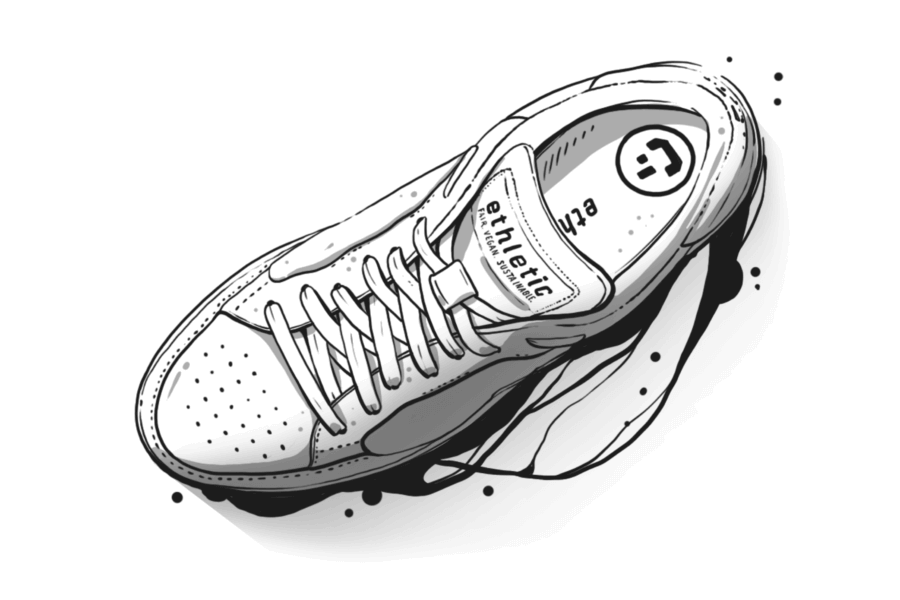This is our Story

2022

2021

2020

2019

2019

2019

2018

2017

2016

2016

2015

2011

2010

2006

2004

2002

1999

1998

It all began with a ball.
The story of the Ethletic sneaker doesn’t start with a sober business plan. It starts with a ball. The first fairly manufactured soccer ball in the world. Also, the story of the Ethletic sneaker doesn’t start in an air conditioned office somewhere in a western metropolis. It starts in a production hall in Pakistan.
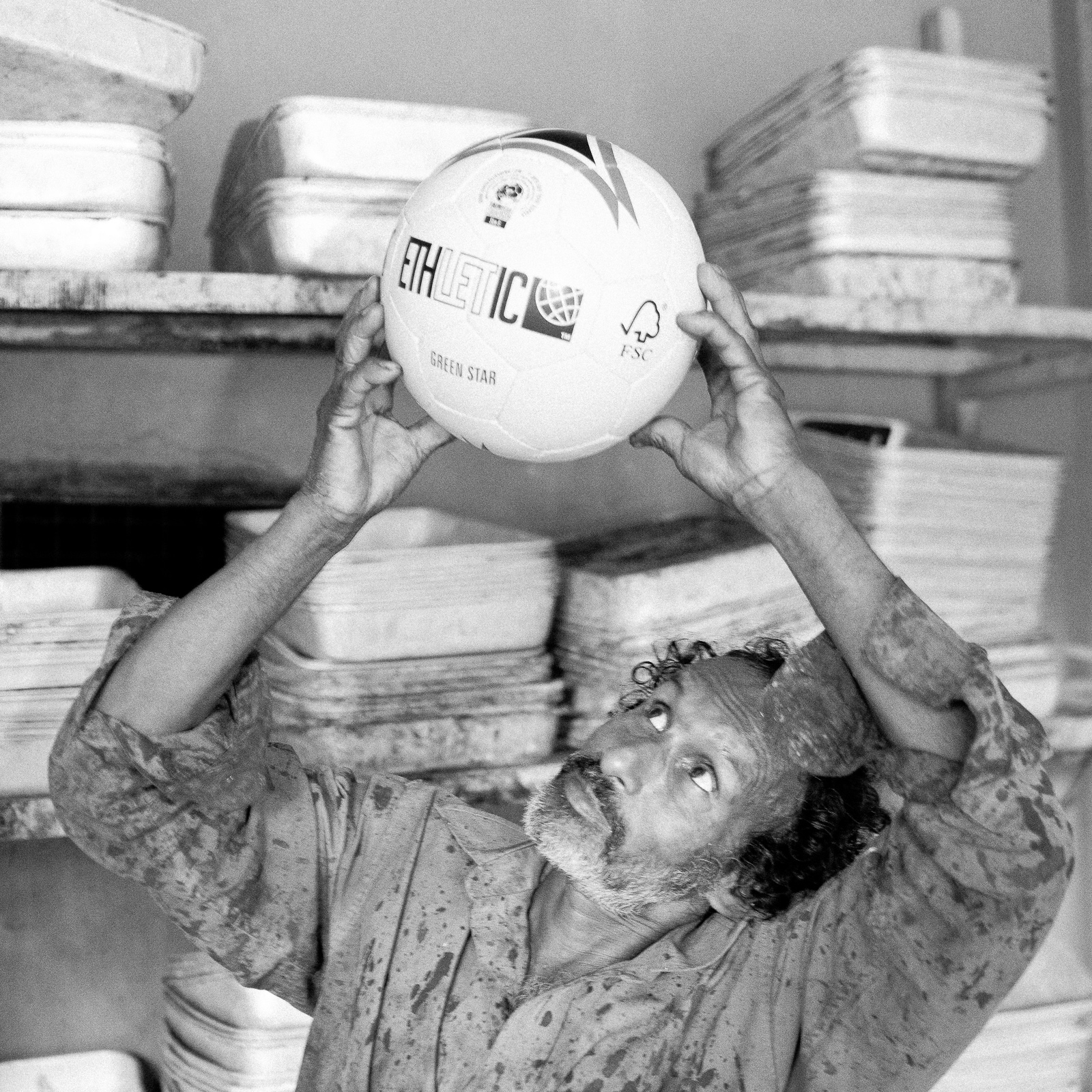
James Lloyd and Dr. Martin Kunz, the founders of Ethletic, had set their mind on manufacturing a new generation of soccer balls. In 1998, they brought the world’s first fairly manufactured soccer balls onto the market.
A pioneering achievement in an industry that was extensively known for child labor and inhumane conditions.
Footballs are largely made from rubber. Because up to then no sustainability seal for rubber had existed, Martin Kunz worked to create one. Thanks to his initiative, the natural rubber from Sri Lanka – used by Ethletic – was certified for sustainable forest management by the Forest Stewardship Council – a global first.
The people who work for Ethletic aren’t numbers on a balance sheet or a cost factor for us. We know these people. We appreciate them and their skills, their commitment, their history.
Since 1999 the employees have received an extra bonus for their work, since 2006 this support has also been used in shoe production: initially 15 percent of the purchase value went to the “Talon Fairtrade Workers Welfare Society” of the production company. Meanwhile, Ethletic now makes these donations in the form of one US Dollar per pair of shoes sold.
The Welfare Society was officially founded in 2002. To this day, it is the sole responsibility of the women and men to decide which projects they want to use this money on, for instance for the education of their children, healthcare, pensions or for micro-loans.
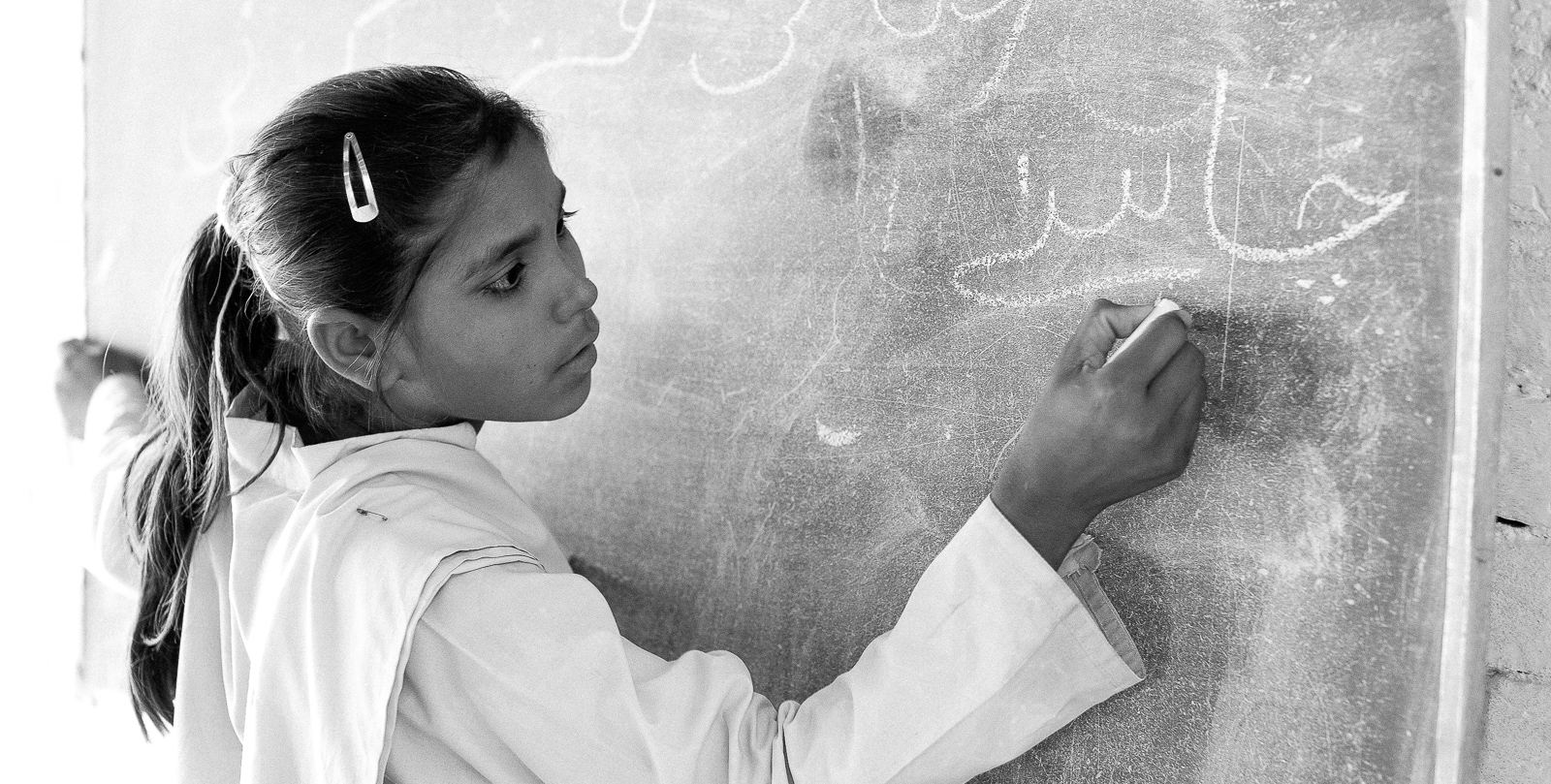
In 2019, Ethletic was the first apparel brand to offer its customers the possibility to tip the workers: Powered by a small add-on developed by social start-up tip me, web shop visitors can send small amounts of money directly to the worker’s cellphone. This way, the tip reaches the men and women to 100 percent. And buying sneakers becomes more personal than ever.
In 2019, as the first sneaker brand ever, we have started to offer our customers a discounted repair option in collaboration with Berlin-based start-up Sneaker Rescue. Ethletic customers can now extend the life span of their favourite pair of trainers and thus relieve the environment.
But how did Ethletic become a sneaker brand? During a meeting with Pakistan’s production manager Mr. Zulifiqar, it slips out of the pocket of one of the founders. Rubber soles. Stitched canvas. Mr. Zulifiqar immediately recognizes a new business venture for his workforce and confidently states: “We can do this, too.”
The idea is in the world: a fairly-traded sneaker, manufactured in a sustainable and environmentally friendly way, using the established Ethletic supply chains. Employees are trained, prototypes are made.
In 2004, the Ethletic Sneaker becomes worldwide the first sneaker on the market to be certified with the Fairtrade quality seal for organic cotton. In 2010 the German Association of Worldshops (Weltladen-Dachverband), with strict criteria and a pioneer in fair trade, adds Ethletic to its list of accredited suppliers.
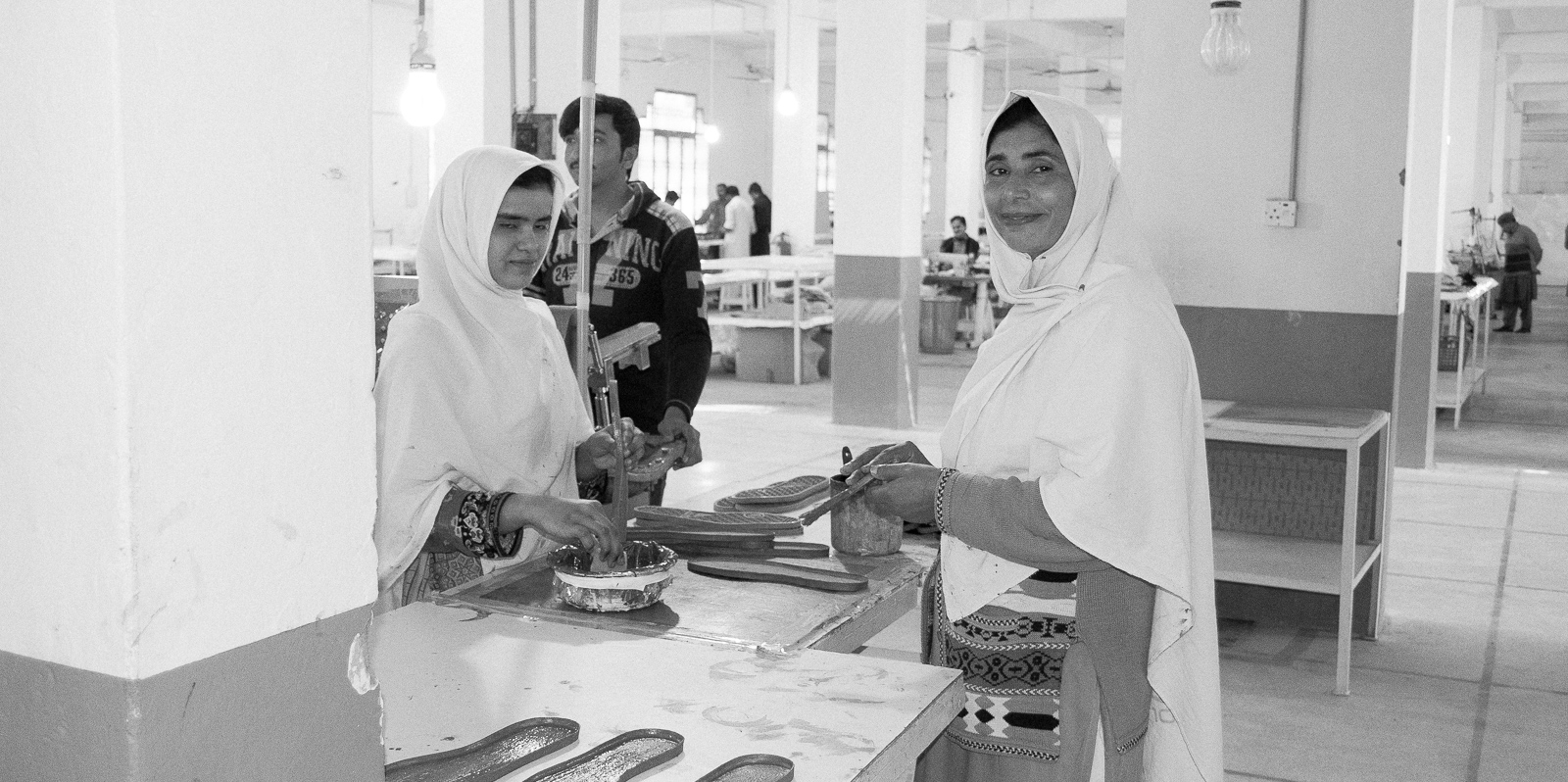
However, the development of our brand is far from complete. Quite to the contrary. Marc Solterbeck, Ethletic CEO since 2011, travels to Sri Lanka, India, and Pakistan several times a year. He is concerned with the continuous improvement of quality, the training of staff, the stability of fair and sustainable supply chains, and especially with the contact to the people He says:
“The people who work for Ethletic aren’t numbers on a balance sheet or a cost factor for us. We know these people. We appreciate them and their skills, their commitment, their history.”
The vision of an ethical alternative to conventional brand products is warmly welcomed in the growing sustainability movement. In 2012 the Berlin architect and freethinker Van Bo Le -Mentzel approached Mr. Solterbeck. His plan: to produce “Karma Chakhs” – good shoes with good karma – with the help of Crowd supporters and Ethletic.
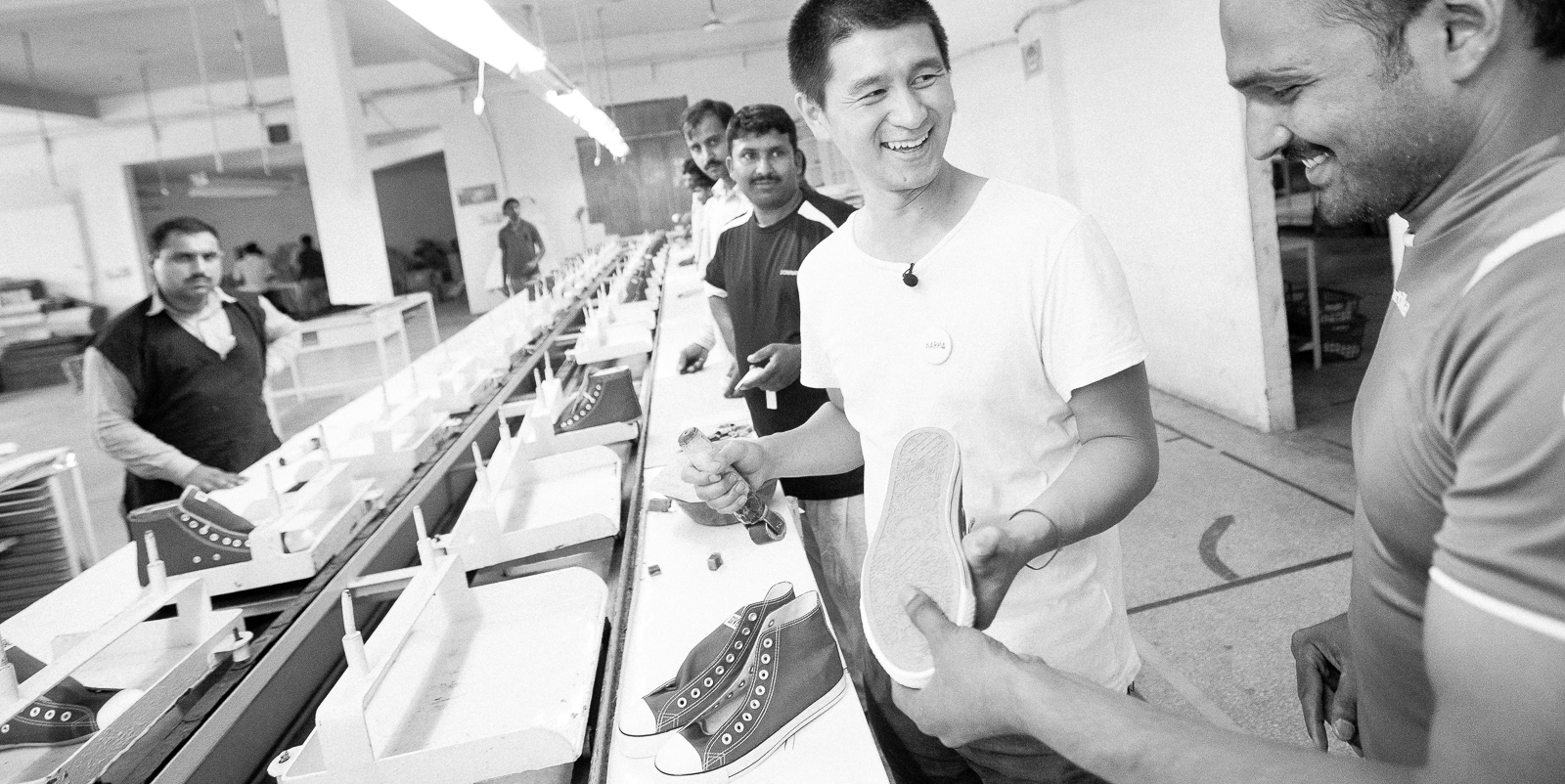
This project provides an opportunity to evaluate the entire production line, from the cotton plantations to the finished shoe, and present it vividly to the supporters. A film crew accompanied Bo and Marc on their journey. The report reaches millions and documents the vision of the brand. In 2013 the report reaches millions and documents the vision of the brand.
A vision that lives off creative impulses. In 2014, the artist Kay Wright designs a limited fashion collection for Ethletic: the “Ethical Couture”, made from 100 % Fairtrade organic cotton. In the same year, the singer Ole Feddersen travels with the Ethletic team to the small farmers in India and incorporates his impressions into the song “Have a Good Feeling”. The Berlin musician, DJ, and video journalist Wolfgang Lohr produces Ethletic film clips.
Collaborating with artists remains important in the years that follow. At the initiative of designer Johanna Balzer several Limited Editions are created, including a Fair Trainer model featuring a print by acclaimed Pakistani artist and female rights activist Shehzil Malik. Another limited model is designed by longboard pro and photographer Esther Suave. And a collaboration between art and design students from Lahore and Berlin results in the production of the most popular models chosen from a collection in an online vote by Facebook Followers.

Our team was very pleasantly surprised in 2016 for Ethletic to be nominated and then win the top Fairtrade Award in the Manufacturer category for our “Outstanding Commitment to Fair Trade”. The prize was presented by German TV star Anke Engelke during the awards ceremony in Berlin. For us at Ethletic this award serves as a testament to our hard work on behalf of ethical fashion products – and an inspiration for the future.

In 2017 Ethletic entered into a cooperation with the highly successful German punk-pop band Donots. The boys are very active on social issues and were looking for Fair Trade sneakers for onstage. This endorsement deal has now grown into a closer collaboration with the development of a Limited Edition Donots sneaker set to hit the market in 2019 celebrating the band’s 25th anniversary.
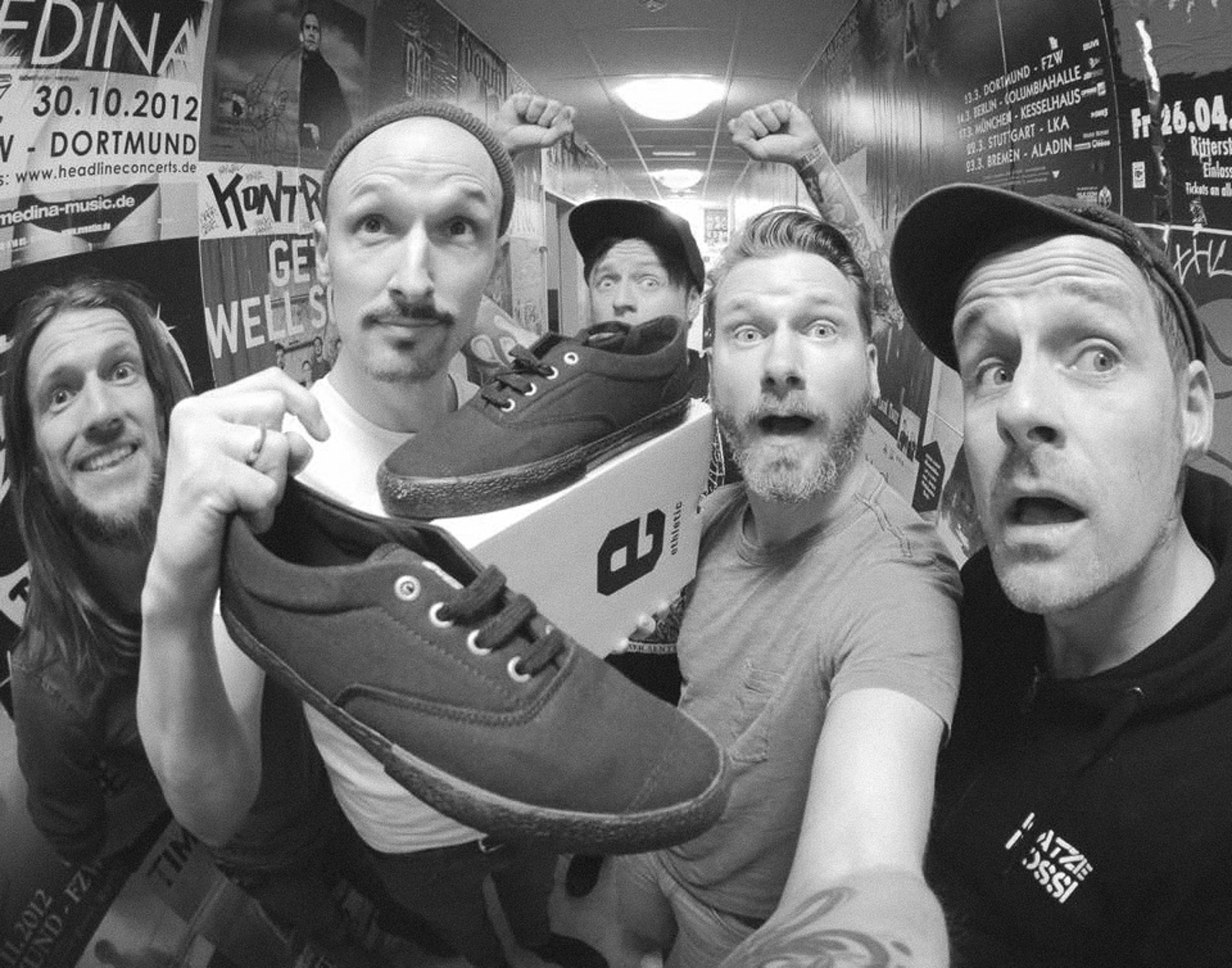

As an ambitious project that’s still relatively small in terms of manpower and budget, Ethletic thrives on the support we receive from our “Ethical Supporters”. Our “Fair Family” includes like-minded animal rights activists, athletes, artists, musicians and a wide range of bloggers passionately dedicated to living in accordance with the ideals of eco-fairness and veganism and promoting this lifestyle to their social media followers.
Ethletic also thrives on continuity and professionalism, important qualities that complement our creative impulses in the further development of the brand. Since 2014 Berlin-based designer Johanna Balzer has been in charge of increasing the appeal of the Ethletic product range and the brand to an ever-widening group of consumers.
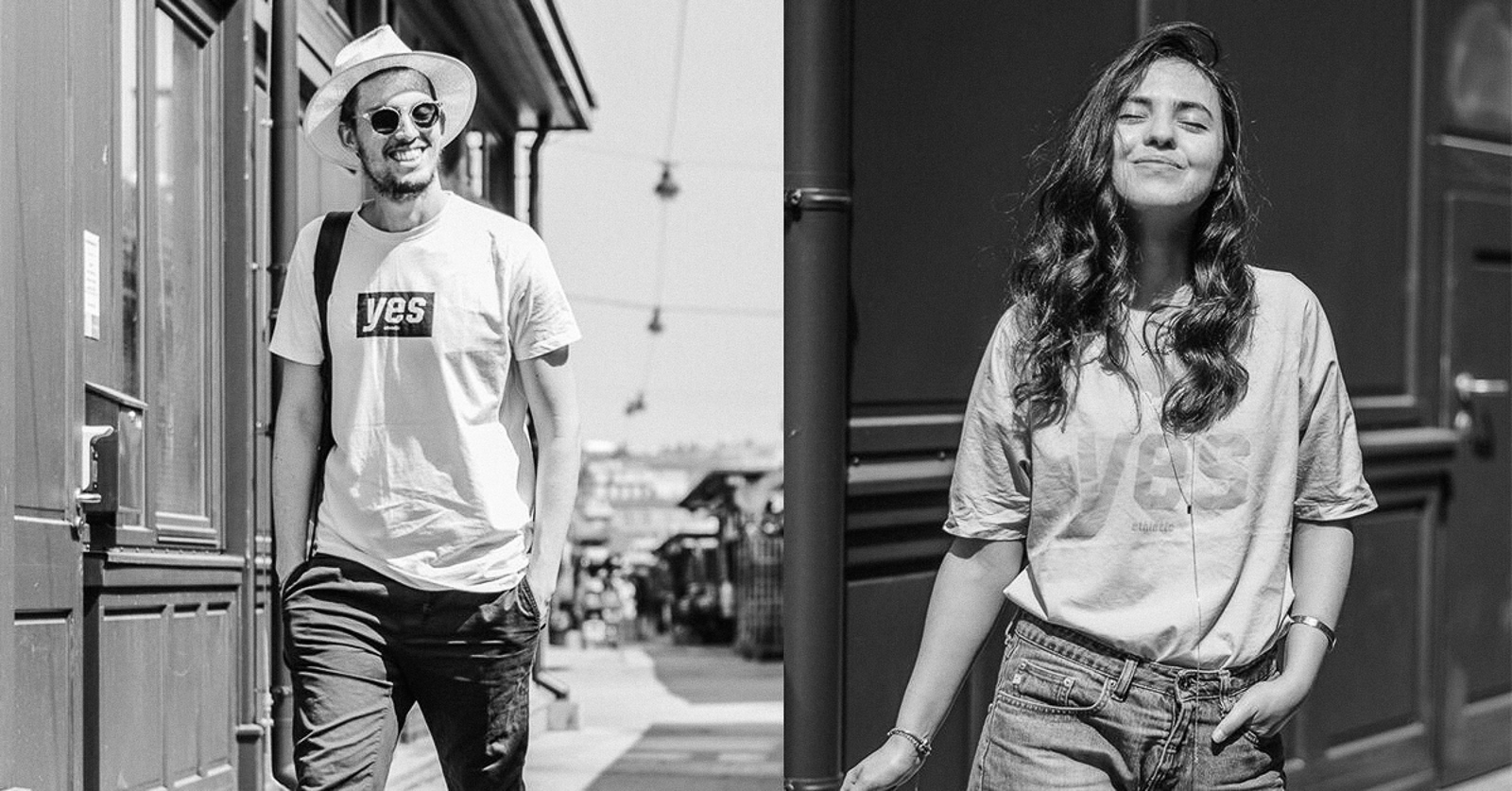
Starting from the classic canvas gym shoe, her designs illustrate the active evolution of the sneaker through its development as a fashionable day-to-day item to more functional sporty models.
This process increases the choice of ethical alternatives in the sneaker segment and will forever be based in Ethletic’s commitment to fairness und sustainability.

